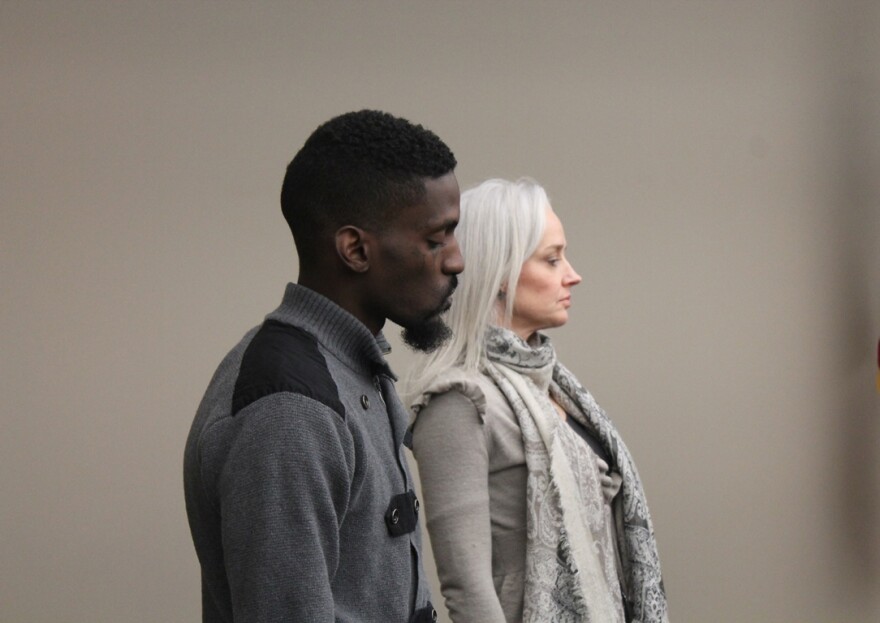Crime in the city of St. Louis went up from 2014 to 2015, driven by a nearly 8 percent spike in crimes against persons.
"One hundred and eighty-eight people lost their lives to senseless and destructive violence the city of St. Louis in the past year," said St. Louis Mayor Francis Slay. "Overall crime was up 2 percent over the previous year. None of these deaths were warranted, and neither of those numbers are acceptable."
Every individual crime except for burglaries, vehicle thefts and rape was up year over year, though a quarter of the increase in arsons came from a series of church fires in October. Aggravated assaults with a gun — which St. Louis Metropolitan Police Chief Sam Dotson calls an unsuccessful homicide — climbed 13 percent.
"Too many guns are on the street. When we arrest people, we don't get the outcomes from the court," Dotson said. "And I'm still perplexed why we're here for over a year, still talking about an armed offender docket, and we haven't gotten one."
Part II crimes — less serious offenses, such as larceny, simple assault and vandalism — were up more than 13 percent from 2014 to 2015.
Dotson noted that over the last 10 years, crime in the city had dropped nearly 50 percent. And he also was keen to point out that the increase in crime slowed later in 2015. Compared to 2014, crime was actually lower in September, October, November and December.
"We've put additional officers, through overtime, into the neighborhoods," he said. "We've re-organized inside the police department to really put all of the enforcement pieces into one silo. What I also realize is that officers are just now catching up from what I call the Ferguson effect. They are back in the neighborhoods, doing the jobs that they do well, focused on the areas and the people that are responsible for the crimes."
Crime commission
Also on Monday, the mayor named the 15 members of his reconstituted Commission on Violent Crime
They are:
- Dr. Kelvin Adams, the superintendent of the St. Louis Public Schools
- Mack Bradley, the founder of StandPoint Public Affairs
- James Clark, the vice president of community outreach for Better Family Life
- Bridget Flood, the executive director of the Incarnate Word Foundation
- Bruce Franks, a co-founder of the social services agency 28 to Life
- Erica Henderson, the director of the St. Louis Promise Zone
- Beth Huebner, a criminology professor at the University of Missouri-St. Louis
- Ginger Imster, the executive director of Arch Grants
- Rod Jones, the president chief executive officer of Grace Hill
- Missy Kelley, the president and chief executive officer of Downtown STL Inc.
- Whitfield Montgomery, a safety officer at St. Louis Public Schools
- Carrie Pettus-Davis, an assistant professor at Washington University's Brown School of Social Work
- Nedim Ramic, an attorney with Barjric and Ramic Law Office
- Joe Walsh, the director of security for the St. Louis Cardinals
- Joe Yancey, the executive director of Places for People, which treats individuals with mental illness
"Crime reduction is my number one priority in the city of St. Louis," Slay said. "Until every neighborhood is safe, and every person can work and play in our city without fear of criminals looking to harm them, we have a lot more work to do."
He angrily dismissed the notion that the committee is nothing more than a last-minute response to crime, or that other issues proved more important.
"The press focuses a lot of attention on things like the stadium or minimum wage," Slay said. "Believe me, we spend a lot more time on the other things we talked about in the PIER plan."

"I'm honored to be a part of this," said Kelley, the Downtown STL CEO. "I'm thrilled to have even more people focused on the same thing that I can connect with to see what we can do together. I really do see momentum and positive change taking place."
Many of the names on the list are from familiar organizations with their own crime-fighting programs. But Bruce Franks, of 28 to Life, said the commission forces everyone to compare notes.
"It's like Transformers, right? Like Voltron," he said. "Everything comes together to create one big machine that's going to help fight this."
Slay said the commission's members have been asked to oversee the implementation of his new crime-fighting strategy. They'll likely meet quarterly in public meetings and release annual reports.
Follow Rachel Lippmann on Twitter: @rlippmann





